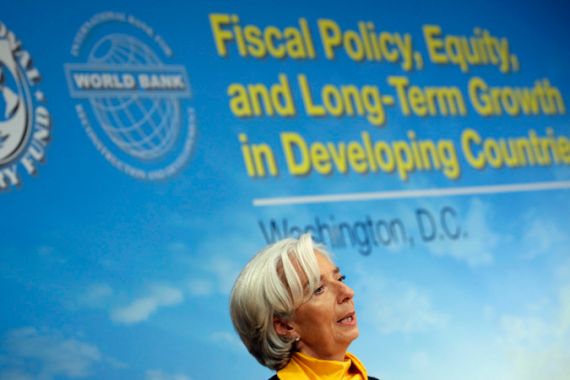EU to shrink further into recession
In a gloomy report, EU warns of record unemployment and continued economic crisis in Europe in 2013.

Recession in the crisis-hit eurozone will be deeper than expected for the rest of the year, with even some of Europe’s biggest economies suffering from hardships.
The EU warned on Friday that unemployment would reach record levels as four of the eurozone’s biggest economies, France, Italy, Spain and the Netherlands, continue to see negative growth.
Keep reading
list of 4 items‘Triple spending’: Zimbabweans bear cost of changing to new ZiG currency
Boeing hit with 32 whistleblower claims, as dead worker’s case reviewed
US imposes new sanctions on Iran after attack on Israel
With signs of recovery still lacking, eurozone members are caught in a fierce debate over the way out of the crisis, with hard-hit countries to the south clamouring for an end to austerity policies championed by Germany and like-minded states to the north.
Italian Prime Minister Enrico Letta made it clear during his meetings this week with German Chancellor Angela Merkel and French President François Hollande that he thought Italy should move away from austerity and towards growth and jobs.
IMF chief Christine Lagarde, however, said on Thursday at the spring meeting of the IMF and World Bank, that she saw little alternative to the ongoing austerity agenda.
In its spring economic forecast, the EU said that gross domestic product in the 17 member countries that use the euro will shrink by 0.4 percent this year, better than the 0.6 percent contraction in 2012 but 0.1 percentage points worse than the EU had forecast back in February.
Record unemployment
The report also had bad news for the wider 27-country EU: it now expects the region’s economy to shrink by 0.1 percent in 2013, against a forecast of 0.1 percent growth in February.
“Grappling with the aftermath of a profound financial and economic crisis, the EU economy is set to pick up speed only very slowly in the course of this year,” the report said.
In tentatively positive news, the European Commission said signs of recovery could begin to emerge in 2014.
Despite this, the ongoing failure of Europe’s economies to emerge from the debt crisis means record unemployment.
Last month 19 million people were registered as being on job seekers’ allowance throughout Europe, with vastly different unemployment rate being recorded between richer eurozone states to the north and those to the south.
“In view of the protracted recession we must do whatever it takes to overcome the unemployment crisis in Europe,” the EU’s commissioner for economic affairs, Olli Rehn, said.
Unemployment in the eurozone could reach 12 percent this year, with the wider EU faring only slightly better with a rate of 11 percent.
The rates vary hugely, with 27 percent in Spain and Greece, which Rehn said was “unbearably high”, but a low of 4.7 percent in Austria and 5.4 percent in Germany.
Cyprus crisis
France, the eurozone’s second economy, will shrink by 0.1 percent in 2013 as weakness in household demand, a key economic driver, finally takes its toll. It will then rebound to 1.1 percent growth in 2014, the EC’s data said.
France, along with Spain and the Netherlands, will miss commitments to meet the EU’s 3 percent of GDP deficit ceiling, a rate that, on Friday, Italy pledged it would meet despite political and economic turmoil in the country.
Rehn said it would be “reasonable” to provide Paris with an extra two years to meet the target, an offer already made to Spain, but appeared to chide the country’s Socialist government, calling for “more important and urgent efforts” to trim spending.
The crisis will be felt hugely in recently bailed out Cyprus, where output is expected to contract by 8.7 percent this year in the wake of a severe restructuring of the island nation’s key banking sector.
The Cypriot recession will carry on into 2014 and beyond, the EC said, with the economy expected to contract by an overall 15 percent between 2012 and 2015.
In a rare glimpse of encouragement, the EC saw recovery in Greece by the end of the year after six consecutive years of recession.
Athens is forecast to eke out 0.6 percent growth in 2014, after contracting sharply by 4.2 percent this year.
The latest raft of grim data comes a day after the European Central Bank cut interest rates to a new record low in an effort to do its part to unwind a crisis now in its third year.